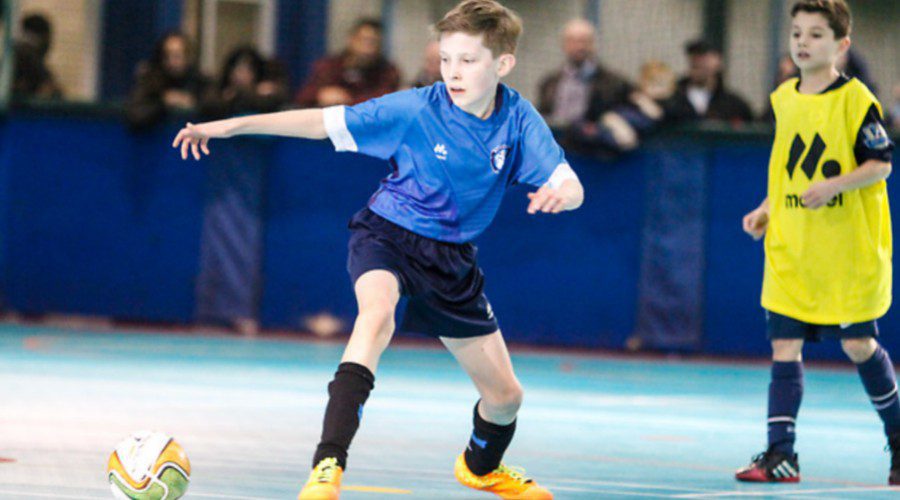
What is Futsal? What you need to know…
Futsal is growing in rapidly in popularity across Europe and most of the world’s footballing nations. It is an exciting, fast-paced form of the game that originates in South America.
The ball is smaller and heavier than a normal ball, meaning play normally stays on the ground. While many become futsal specialists, others enjoy playing to improve their technique and control for 11-a-side football.
Played on hard pitches with small-sided teams, Futsal places emphasis on technical skill in restricted spaces. It is a shortened, five-a-side version of the game that is played indoors, with each half lasting only 20 minutes. Matches are normally packed with action, displays of great skill, enduring excitement and lots of goals – they is always plenty frenetic entertainment.
With many FAs now supporting the development of or directly providing opportunities for events and activities, its rise in focus comes from the proven success of long list of legendary footballers like Pele, Messi, Marcello, Neymar, Ronaldinho, Ronaldo (the Brazilian one), and many more all having played Futsal at a young age.
The Main Benefits of Futsal
It will improve technical ability
There is lots of anecdotal evidence about the role it has played in the development of many of the world’s top players – Marcelo, De Bruyne, Neymar and Ronaldo are just a few.
Research is telling us that the constraints futsal puts on players is the reason why players get better. Futsal can help players develop their ability to play in tight situations, pass more accurately, become better at quick decision-making and understand tactics. In addition, it is a great way for players to develop their skills of shielding and protecting the ball.
It will challenge your players in new ways
If you want to give your players a new and challenging experience it is important that you stay true to the principles and constraints – otherwise you’re not going to get anything different for the kids than going indoors and playing 5 a-side.
It is really important to:
– Play to lines, even if the courts are small and not off the walls
– Use futsal sized goals (3m x 2m)- if you only have letterbox sized goals put cones inside the goals to make the goals smaller
– Use the appropriate size of futsal ball: size three for U12s and size four for above.
– Stick to the laws of the game such as the number of players on court
Futsal helps players to develop their touch and control
Futsal teaches finesse, reaction, creativity, instinct, awareness and decision making. The smaller playing area, fewer players and a distinct lack of space force players to constantly be on the move searching out space, improve their passing accuracy and concentrate on staying in possession of the ball. The best futsal players are always alert and ready for the ball at all times.
Futsal focuses on simple football
Good futsal teams concentrate on developing simple and repeatable tactics, playing principles and match experience. Football started as a simple game and grew in popularity via small sided games played on streets, beaches, etc between players who just enjoyed the game. Futsal encourages players to go back to applying basic football principles and using simpler rules for players to apply on the field. This encouraged players to think clearly, understand their position and role on the pitch, and how to execute strategies created by their coach.
<< Download the free FA Guide to Futsal here >>
For more information – What is Futsal?








